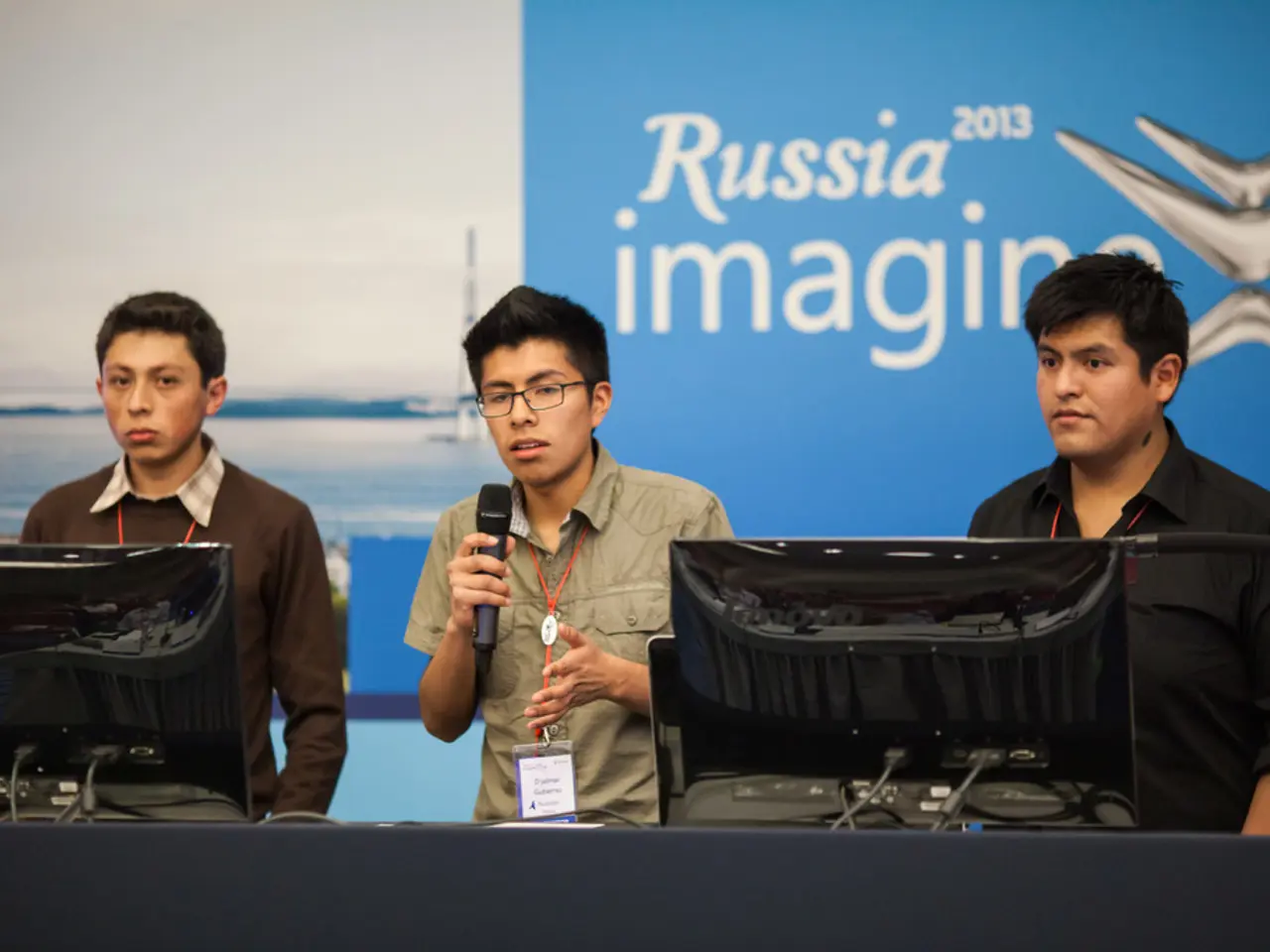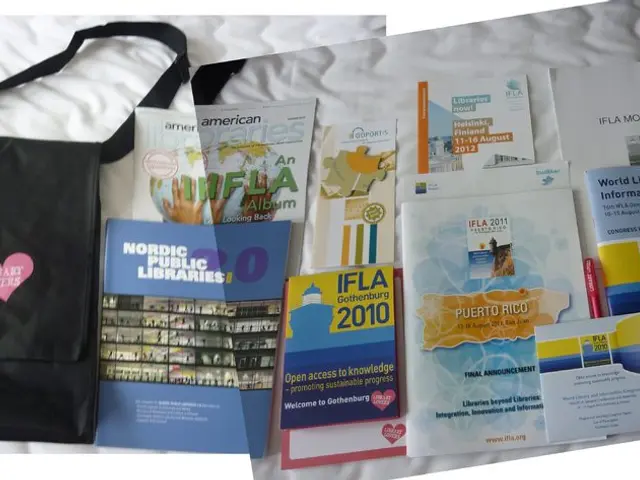Ukraine's President Zelensky Discusses Tense Matters with Germany; Focus on Russia's Influence
The upcoming USA-Russia summit has sparked concerns in Europe and Ukraine, with fears that President Trump and President Putin could discuss territorial concessions or a "territorial exchange" of Ukraine with Russia. This proposal is strongly rejected by Ukrainian President Volodymyr Selenskyj and the European Union [1][3].
On the eve of the summit, leaders from France, Britain, Italy, Poland, Finland, EU Commission President Ursula von der Leyen, EU Council President António Costa, NATO Secretary-General Mark Rutte, and Selenskyj will gather for a preliminary discussion at 2:00 PM [2].
Selenskyj has denied Russia's willingness for peace ahead of the summit, while Trump has expressed a desire to see a ceasefire in Ukraine but emphasizes that it is not his responsibility [3]. Putin's strategy before the summit suggests true intentions regarding Ukraine [6].
The goal is to find a common line with Trump afterwards, but the USA President has repeatedly stated that the USA do not want to continue paying for the Ukrainian defense effort [7]. Trump also has significant leverage over Ukraine, including the ability to stop the provision of satellite data or intelligence [8].
However, Trump cannot make any binding promises to Putin without Ukraine's consent regarding a ceasefire or withdrawal [9]. Russia's Kremlin advisor is driving Ukraine demands to Trump, offering two possible options [10]. Related questions about territorial claims and security will also be discussed [11].
Chancellor Friedrich Merz received Selenskyj at the Chancellery in Berlin, with the talks focusing on further options for exerting pressure on Moscow and possible peace negotiations [12]. Selenskyj is the only guest of Merz who will be present personally at the video conference with US President Donald Trump [13].
The complex dynamic of these negotiations suggests a continuation of wary, incremental diplomatic efforts without immediate resolution. Europe's leverage in these discussions remains constrained, with European leaders travelling to Washington more as supplicants urging the United States not to make unilateral deals with Russia [4].
This article does not contain any advertisements. The National Guard is on alert in the US capital due to concerns about Trump's actions being an "illegal power grab" and a "wannabe king."
European leaders, including Merz, show some willingness to consider territorial compromises starting from current battle lines but insist on reciprocal agreements and uphold Ukraine's sovereignty principles [2]. Russia maintains firm demands and seeks a decisive political and military advantage before engaging seriously in peace talks [5].
In summary, the summit may lead to preliminary discussions or a high-level meeting between Putin and Zelenskyy, but significant peace accords are doubtful given Russia's hardline stance [1][3][5]. The potential outcomes of the summit remain uncertain, with the future of Ukraine hanging in the balance.
[1] Reuters
[2] The Guardian
[3] CNN
[4] The New York Times
[5] BBC News
[6] Bloomberg
[7] AP News
[8] The Hill
[9] Politico
[10] Axios
[11] The Washington Post
[12] Deutsche Welle
[13] Reuters
- As the USA-Russia summit approaches, issues related to war-and-conflicts, particularly territorial concessions or exchanges in Ukraine, are at the forefront of politics and general news, with European leaders and the Ukrainian President showing resistance to any territorial compromises.
- Policy-and-legislation regarding Ukraine's sovereignty and defense are under scrutiny, with European leaders urging the United States not to make unilateral deals with Russia, while also considering reciprocal agreements in the event of territorial compromises.







